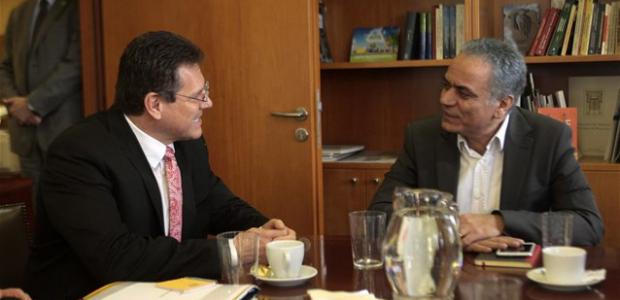Greece’s energy policies as part of a wider European Commission strategy aiming for energy union and security in the EU were discussed during a meeting in Athens yesterday between energy minister Panos Skourletis and Maros Sefcovic, the European Commission vice president responsible for Energy Union.
The two officials focused on the importance of prospective European interconnection projects, both in the natural gas and electricity sectors, institutional framework revisions made in the Greek gas market, as well as expected revisions in the renewable energy (RES) sector.
“We discussed all the issues concerning energy in the EU and, obviously, how these are being shaped for our country,” Skourletis remarked following the meeting. “Greece now possesses all the prerequisites to become a regional energy hub. This prospect is based on the major projects planned – the natural gas pipelines as well as electricity interconnections,” he added.
Describing the session as highly constructive, Skourletis also noted that the efforts being made by all EU member states to achieve secure, reliable, and lower-cost services, both for households and enterprises, were also discussed.
Skourletis and Sefcovic, joined by officials representing DESFA, Greece’s gas grid operator, DEPA, the Public Gas Corporation, and the energy ministry, also visited the LNG terminal facility on Revythoussa, an islet in the Saronic Gulf, close to Athens, where progress on the development of an additional third LNG storage tank was presented.
The Revythoussa facility has acquired a more crucial role as a result of the EU’s increased gas needs in more recent times, as well as the plan to widen LNG supply. The Revythoussa facility’s expansion is expected to be completed within 2017.





